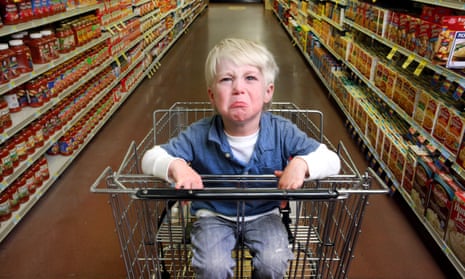Parenting is hard, and American parents are struggling more than most.
In an upcoming study in the American Journal of Sociology, American parents report the largest happiness gap when compared with their childfree counterparts – a whopping 12% less happy on average. A recent New York Times article posits that this gap probably exists due to inadequate government policies including lack of paid maternity leave and affordable childcare. Parents are overwhelmed, frustrated and often incredibly isolated.
On top of this, they have to deal with lacklustre real-life networks. Abandoned by the oft-referenced village it takes to raise a child, it’s no surprise to see more and more mothers reaching out to each other through the digital space – on blogs, Instagram accounts, and more recently, through open letters.
Examples aren’t hard to find. Read, for example, the open letter to the mom with a toddler and a baby, the open letter to the mother of a strong-willed child or the open letter to the tired young mamas trying so hard.
They are always written with incredible empathy, each word balm for the stark, stinging loneliness that the experience of motherhood can inspire – the state of being always and never alone.
However, they also completely miss the mark.
One of the lowest points of my parenting life came shortly after my marriage collapsed. I, in a collosal error in judgment, found myself with my two-year-old daughter in one of North America’s largest shopping malls, four days before Christmas.
My daughter had refused to wear anything but her puppy costume and I had let her, because I was too emotionally drained to argue otherwise. When it was time to leave, she threw herself to the floor of the crowded food court screaming and flailing, refusing to stand up or walk or listen to any of my furiously whispered pleas to behave.
Realizing that I had no choice but to remove her, I gritted my jaw, picked her up off the floor and hauled her towards the exit. I walked with her under my arm, screaming and struggling all the way out to the parking lot where I wrestled her into her car seat, streams of angry, embarrassed tears pouring down my cheeks.
Hundreds of people in the mall that day watched the scene unfold, and no one said a thing. Reflecting on it later that night, I felt incompetent, emotionally gutted. I was sure that those observing me and my daughter that day had judged me harshly and given my efforts a failing grade.
During all of this vicious self-flagellation, the one thing I didn’t do was go online to see if a kindhearted stranger had witnessed my struggle and written me an open letter filled with support.
To the mother of the toddler in a puppy costume losing her mind at the mall today …
To the woman with hollow eyes crying in front of Taco Bell while her daughter screamed and bucked in her arms like a demon possessed …
To the mother with surprisingly impressive upper-body strength despite having lost 15 pounds in two weeks from sheer emotional distress …
If someone wrote an open letter about what happened that day, I never read it. And therein lies the problem.
Open letters do not bridge the gap in the way they’re intended. They allow us to do what politicians have done for years – create beautiful rhetoric about support for parents while simultaneously withholding assistance during their greatest moment of need.
That woman – the one with the tenuous grasp on sanity, the one teetering on the brink of crying in public, the one touched out, sleep-deprived, heartbroken or frustrated – doesn’t need a letter written days or weeks after the fact, published in crisp pixels on a cold computer screen any more than she needs a “family values” candidate who refuses to talk about affordable childcare.
Marginalized by bureaucrats and absent strong community support, the addressee needs a human being, right there. She needs a hug, kindness, someone who’s been there before and knows how to help. Not with beautifully penned platitudes or viral online content, but by holding the groceries she’s about to drop, intervening with the judgy stranger about to crush her spirit, or distracting the child seconds away from making her lose her mind.
Actions, not words.
It’s harder to do this. Riskier, too. It’s often impossible to find the right words in real time. You risk saying the wrong thing, you risk being told you’re wrong for saying anything at all. But this risk is vital, and what’s more, it’s necessary.
In the face of someone vulnerable, in pain, helpless or struggling, we have to take a step forward and make ourselves vulnerable, too. Sharing this risk is how we make connections, it’s how we bridge the divide. I want to see change which will help communities re-knit themselves in a fabric that actively supports parents, and particularly mothers.
Perhaps then the content of these open letters will change:
To the mother whose child I distracted with silly faces while in line at the grocery store, preventing a meltdown of epic proportions …
To the mother I high-fived for resolutely holding her ground as her child lay on the floor, spaghetti legged and wailing for a toy she’d already said no to …
To the mother who I hugged after she found herself standing shocked and stinging after her toddler hit her in the face …
Demanding better support for parents is essential – it’s one of the central themes in the upcoming election – but while asking politicians to abandon their arm’s-length interaction with parents and dig in to help with the challenges involved in raising a child, we must first be ready and willing to model that support ourselves.

Comments (…)
Sign in or create your Guardian account to join the discussion